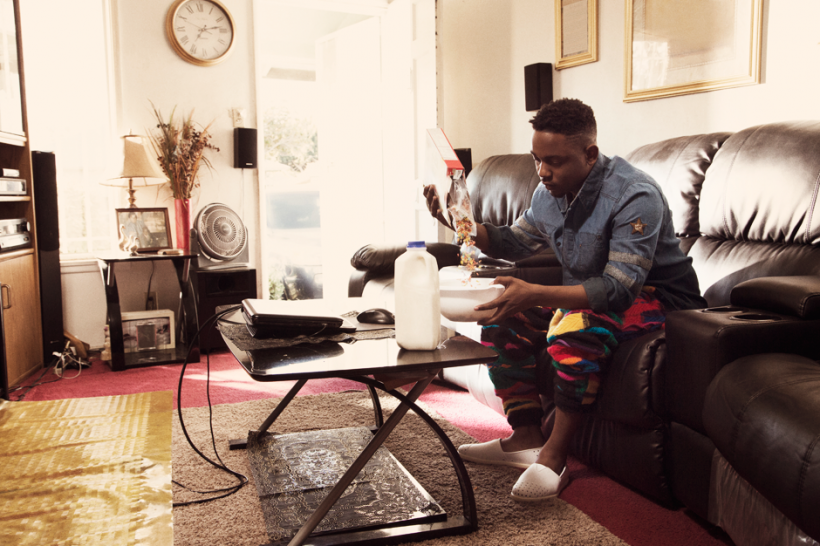Last night, Big Sean released “Control,” a track that won’t make his upcoming album, Hall of Fame, due to sample-clearance issues. It’s a seven-minute epic pulled along by a squeaky Spanish-language sample, with guest verses from a terse, confident Jay Electronica and an acrobatic Kendrick Lamar. The latter’s endless-in-a-good-way rapping here expands from an intoned chant to a gravelly near-yell, delivering loaded lines wherein he declares himself “the King of New York”; places himself amid some of rap’s all-time greats (Jay Z, Nas, Eminem, Andre 3000); and, via direct shout-outs, offers up a challenge to the rest of his straight-spitting generation: “Jermaine Cole, Big K.R.I.T., Wale / Pusha T, Meek Mill, A$AP Rocky, Drake / Big Sean, Jay Electron’, Tyler, Mac Miller / I got love for you all but I’m trying to murder you niggas.” The verse immediately knocked everybody over.
But “Control” is not quite as impressive as it seems. There’s a great deal of filibustering in Kendrick’s verse: Far too much name-checking just to fill space (from Kurupt to Lindsay Lohan), and numerous lines that say the same exact thing in pretty much the same exact way. The chilling “I don’t smoke crack, motherfucker, I sell it” sounds like a Compton cryptkeeper character straight out of his 2012 rap opera good kid, m.A.A.d city, but the idea is quickly abandoned. Such a rah-rah song could use some pathos, and Kendrick’s great at that-pleasure-that-pain rapping, but only toward verse’s end, when he conjures up an extended, absurdist image (skydiving out of a plane piloted by a drunk-ass old man) does the end result qualify as truly memorable and vivid. Sure, Kendrick’s expert trolling of rap’s gatekeepers is the big takeaway here, but you admire his balls in even attempting such a thing more than the writing itself. Contrast it with the sober (and, yes, less exciting) Jay Electronica verse that immediately follows — with a solid elemental conceit sustained throughout, every line building on the previous one and propeling his boasts forward — and Kendrick comes off as unfocused and chaotic.
“Control” is also a rap verse about how much he’s killing it, even though he isn’t really killing it. It feels like an event because Kendrick tells you it’s an event. And so it becomes an event, picked up and propelled by a thirsty blogosphere awash in “What do you think? Comment below!”-style nonsense. It’s rap lyricism as click bait. Amazingly well-rapped click bait, but Kendrick calling himself “King of New York” is cheap nonetheless. Cheap because it’s just a lazy way of upsetting a certain quadrant of embattled rap listeners, but also because at the same time, it tows the party line that New York hip-hop is still monolithic, or even matters much at all. Does it mean anything in 2013 to be the King of New York Rap? Does it mean anything to say you’re the King of New York Rap?
Tucked around that unlikely declaration is an incredibly safe act of maintaining the status quo for what constitutes “good” rapping. New York hip-hop is briefly challenged and affronted here, but ultimately, it is also further mythologized. Also, the lack of Southern MCs in Kendrick’s rundown (save for Big K.R.I.T.) is particularly egregious. Kendrick is constructing a narrative here: Not only did he unleash the verse of the year, dawg, but he’s essentially told listeners which mainstream-approved rappers they should care about. He might as well be editing XXL here, planning a cover story titled “#NEWLYRICISM.” Typically, though, there’s nothing “new” about the lyricism celebrated or displayed on “Control.”





